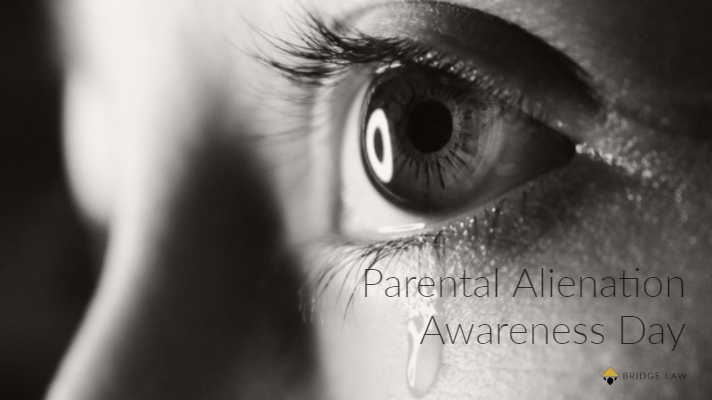25th April 2019 – Global Parental Alienation Awareness Day


25th April marks a global Parental Alienation Awareness Day. This blog looks at what parental alienation consists of to help raise awareness of an increasingly common problem.
In many cases where parents separate or divorce there will be some level of hostility that the children get drawn into. They will often overhear negative things said about the other parent or even have comments made to them directly. Sometimes contact with the other parent could be stopped on occasions or there could be difficulty with arrangements.
Parental alienation however goes further than this and is very difficult to deal with for all concerned. It involves children being influenced by a parent to have a totally negative view of the other parent. This is not a situation where a child may have a justifiable negative view, if for example they have been abused by the other parent or the other parent has behaved in a way that the child has formed their own negative view. It is instead a situation where a child or children are manipulated and influenced into believing that the other parent is such a bad person that they should not have anything to do with them. It is important to get to the truth of the situation as soon as possible but not easy to do so.
There are some extremely upsetting cases where one parent may for example make wholly untrue allegations of sexual abuse against the other parent and coach the child into believing they have actually been abused. The parent in these cases for whatever reason seem totally unable to understand the harm that they cause their own children. They will, for example, see children put through intimate physical examinations without any care for the distress this will cause the children.
Alienating a child from a parent risks serious emotional harm and potential lifelong damage.
Parents behaving in this way need to be aware that they not only risk their child’s emotional well-being but also risk losing the care of their child. If it becomes clear that a child is being alienated and will not be able to enjoy a relationship with both parents, the courts may decide that the child should live with the other parent. In some circumstances the court could decide that if the parent who was responsible for the alienation cannot change their behaviour, that even spending time with the child may be harmful and that in the interests of the child could stop them spending time together to prevent this happening.
There have been recent steps taken to try to tackle this issue more pro-actively in the family court but there is ongoing pressure to do more.
If you require advice or assistance in a case involving parental alienation, please contact our specialist team on 01484 442 700 who will be happy to help.
Child Arrangements, Children Matters, Family Law, Parental Alienation
